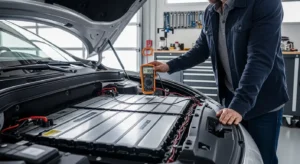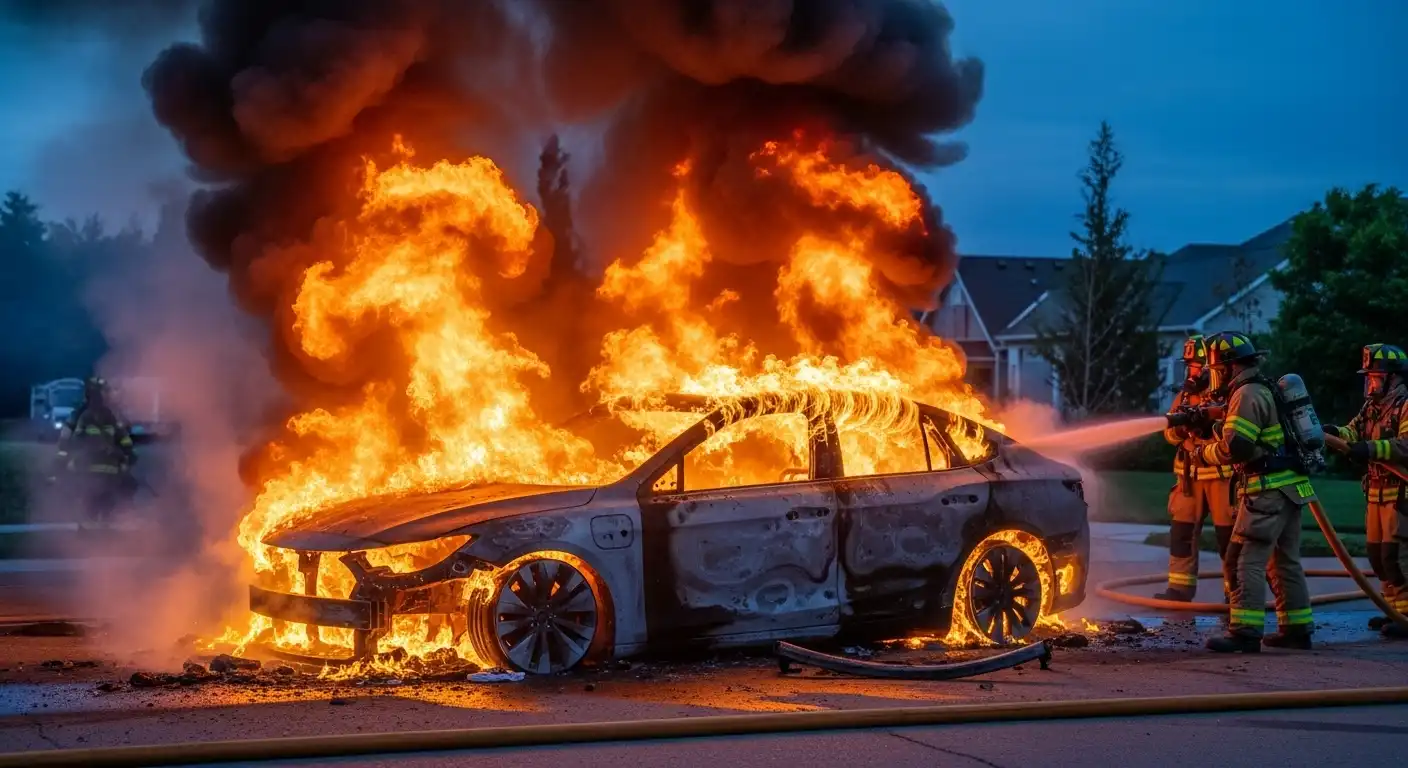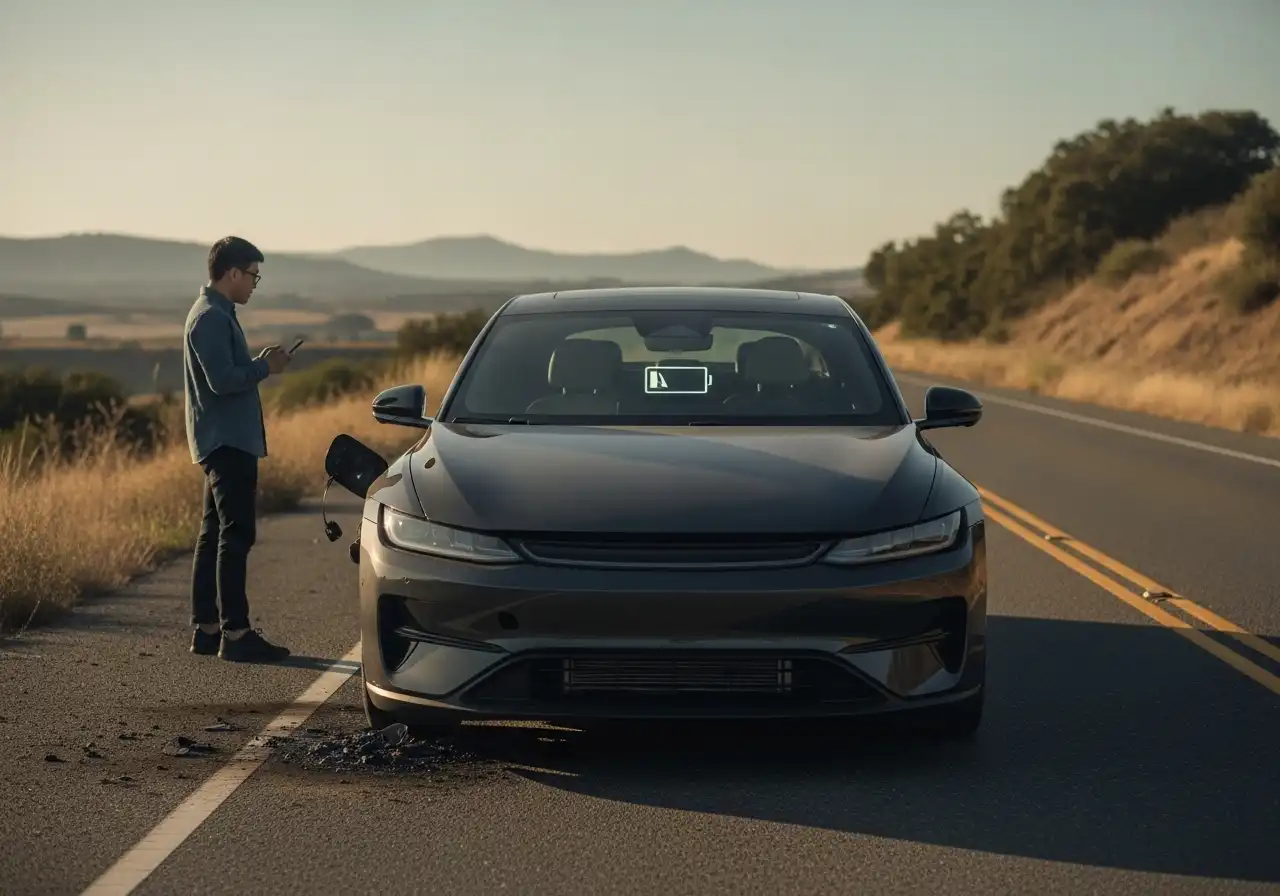Why EV accidents are different
 Traditional car accidents usually focus on driver negligence—speeding, distraction, or intoxication. With EVs, there are additional complexities:
Traditional car accidents usually focus on driver negligence—speeding, distraction, or intoxication. With EVs, there are additional complexities:
- Battery hazards: A crash can damage the EV’s high-voltage battery, causing thermal runaway that results in smoke or fire hours after the collision.
- Software errors: Many EVs rely on firmware and over-the-air updates. Bugs in driver-assist features can lead to misjudgments or delayed braking.
- Charging infrastructure: Faulty chargers or damaged cables can trigger accidents or electrical injuries.
- Repair complications: Even minor collisions may result in costly battery pack replacements or disputes with insurance over repairability.
These differences make electric vehicle accident claims more technical and often harder to resolve than standard auto accidents.
Who can be held liable in an EV accident claim?
Liability in EV cases isn’t always straightforward. Depending on the circumstances, different parties may share responsibility:
- The driver: If they drove negligently, ignored system warnings, or misused the vehicle’s autonomous features.
- The manufacturer: For design defects, faulty battery packs, defective sensors, or unsafe crash structures.
- Software developers: If updates introduced bugs or malfunctions in autopilot or braking systems.
- Battery suppliers: When faulty cells or modules cause fire or intensified damage.
- Charging station operators: If unsafe or malfunctioning equipment contributed to the incident.
- Third-party maintenance shops: For improper repairs that compromise safety systems.
In some cases, multiple defendants may be named in the same claim, making legal representation essential.
Evidence that strengthens an EV accident claim
Beyond typical photos and medical records, EV accident cases often hinge on technical evidence:
- Vehicle logs: EVs record detailed data about speed, braking, sensor readings, and battery status before and during the crash.
- Firmware update records: Logs showing recent updates or recalls can establish product liability.
- Battery analysis: Forensic inspection can reveal whether the fire or explosion was due to defect rather than crash severity.
- Charging history: Records from charging stations can prove electrical surges or equipment failure.
- Expert testimony: Battery engineers, automotive software experts, and accident reconstructionists can explain the technical issues to a jury.
Securing this evidence early is critical, since logs and diagnostic data can be overwritten or erased quickly.
Steps to take immediately after an EV accident

- Ensure safety: Move to a safe distance if you suspect battery damage or smell chemicals—EV fires can reignite hours later.
- Call emergency services: Firefighters need specialized training and equipment to handle lithium-ion battery fires.
- Preserve the vehicle: Don’t let insurers or repair shops erase or reset logs without your lawyer’s approval.
- Gather witness statements and videos: Footage may show smoke, sparks, or autonomous driving behavior.
- Seek medical evaluation: Smoke inhalation and electric burns can have delayed symptoms.
- Contact a specialized attorney: EV accident claims often involve product liability and require lawyers who understand technology.
Related: Essential Steps to Take Immediately After an Accident
Damages you may be entitled to
Victims of EV crashes can pursue compensation for:
- Medical expenses, surgeries, rehabilitation
- Lost wages and reduced future earning capacity
- Pain, suffering, and emotional distress
- Property damage, including vehicle and personal belongings
- Expert analysis and legal fees
Related: How to Prove Fault in an Accident: Key Evidence You Need
Common defenses in EV accident cases
- User error: Manufacturers may argue the driver ignored warnings or misused autopilot features.
- Post-accident damage: Companies may claim battery fires were caused by improper storage or tow handling.
- Failure to update: Automakers sometimes shift blame if the driver delayed a recommended firmware update.
- Warranty disclaimers: Fine print that limits liability for software or battery issues.
A strong legal team can counter these defenses with expert testimony and documented evidence.
Why hiring the right lawyer is essential
EV accident claims require knowledge that blends traditional personal injury law with product liability and technology law. The right lawyer can:
- Secure vehicle logs before they’re lost
- Work with engineers to reconstruct battery or software failures
- Negotiate against large corporations and insurers
- Ensure you receive compensation for both immediate and long-term damages
Checklist for EV accident victims
- Ensure physical safety first—watch for delayed fires
- Call emergency services trained in EV hazards
- Document everything with photos and video
- Preserve the car and logs as evidence
- Seek specialized medical and legal help
FAQs
Can I sue the EV manufacturer for a battery fire?
Yes, if the fire resulted from a design or manufacturing defect. Expert analysis will be required to prove this.
Do insurance policies cover EV battery fires?
Some policies do, but coverage may be disputed due to high replacement costs. Always review policy exclusions.
What if the charging station caused the fire?
The operator or installer of the charging station may be liable if faulty equipment contributed to the accident.
Conclusion
Electric vehicles are transforming transportation, but they also bring unique accident risks. If you are involved in an EV crash in 2025, you must think beyond traditional driver negligence. Data logs, software updates, battery forensics, and multiple defendants make these cases complex. With quick action and the right legal team, you can protect your rights and secure fair compensation.
Need help with an EV accident claim? Contact us today for a free case review and tailored legal guidance.




